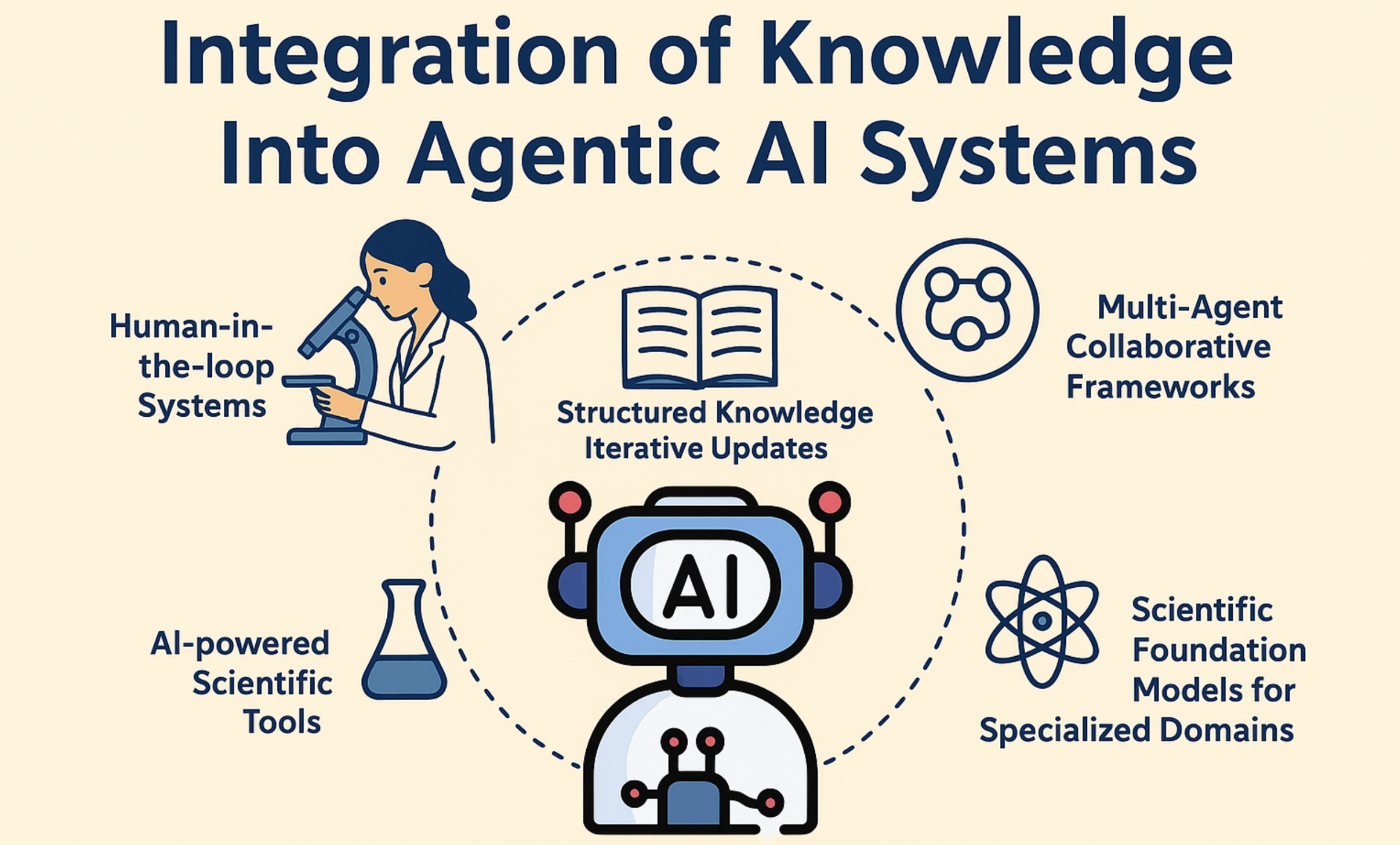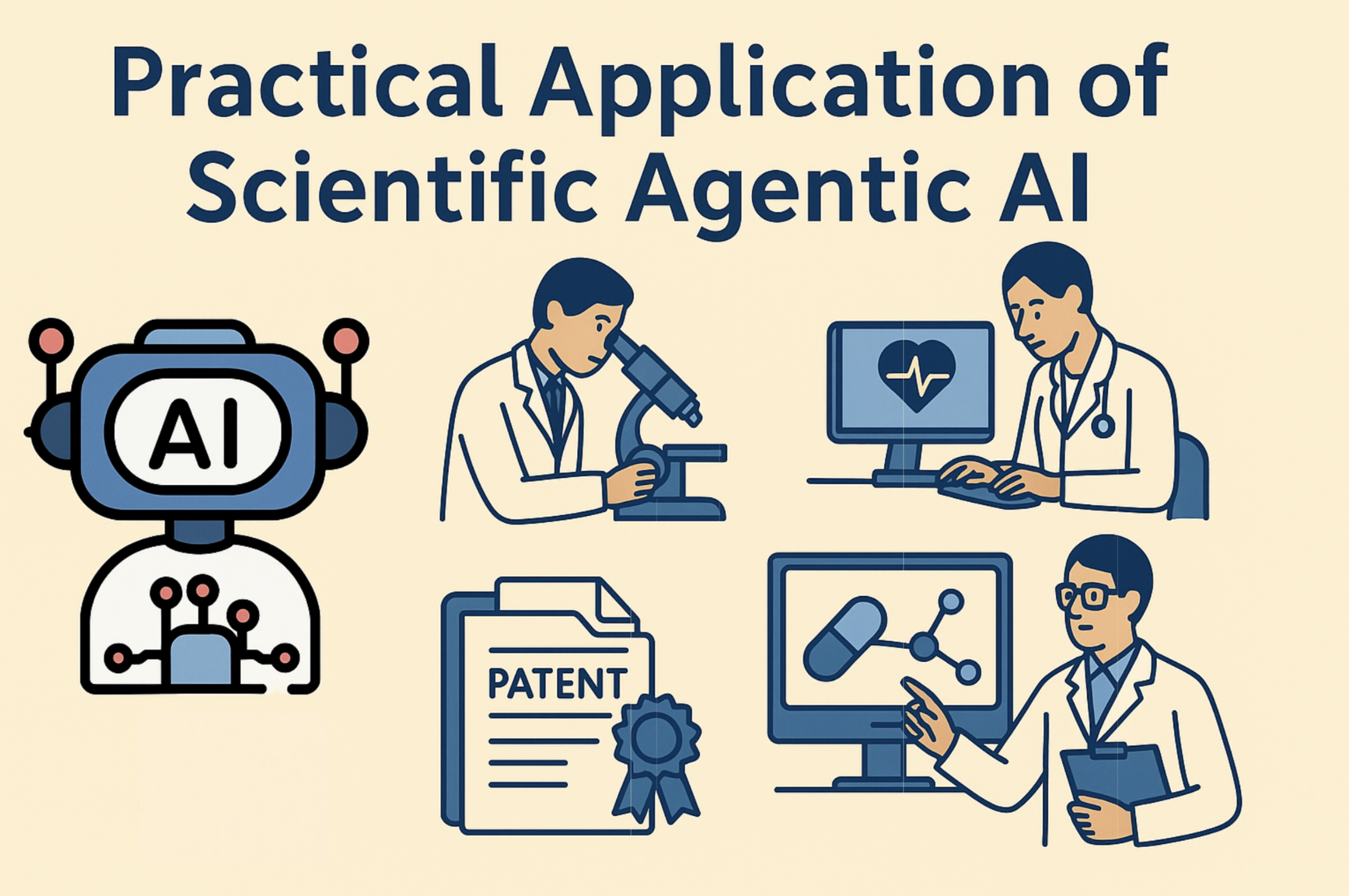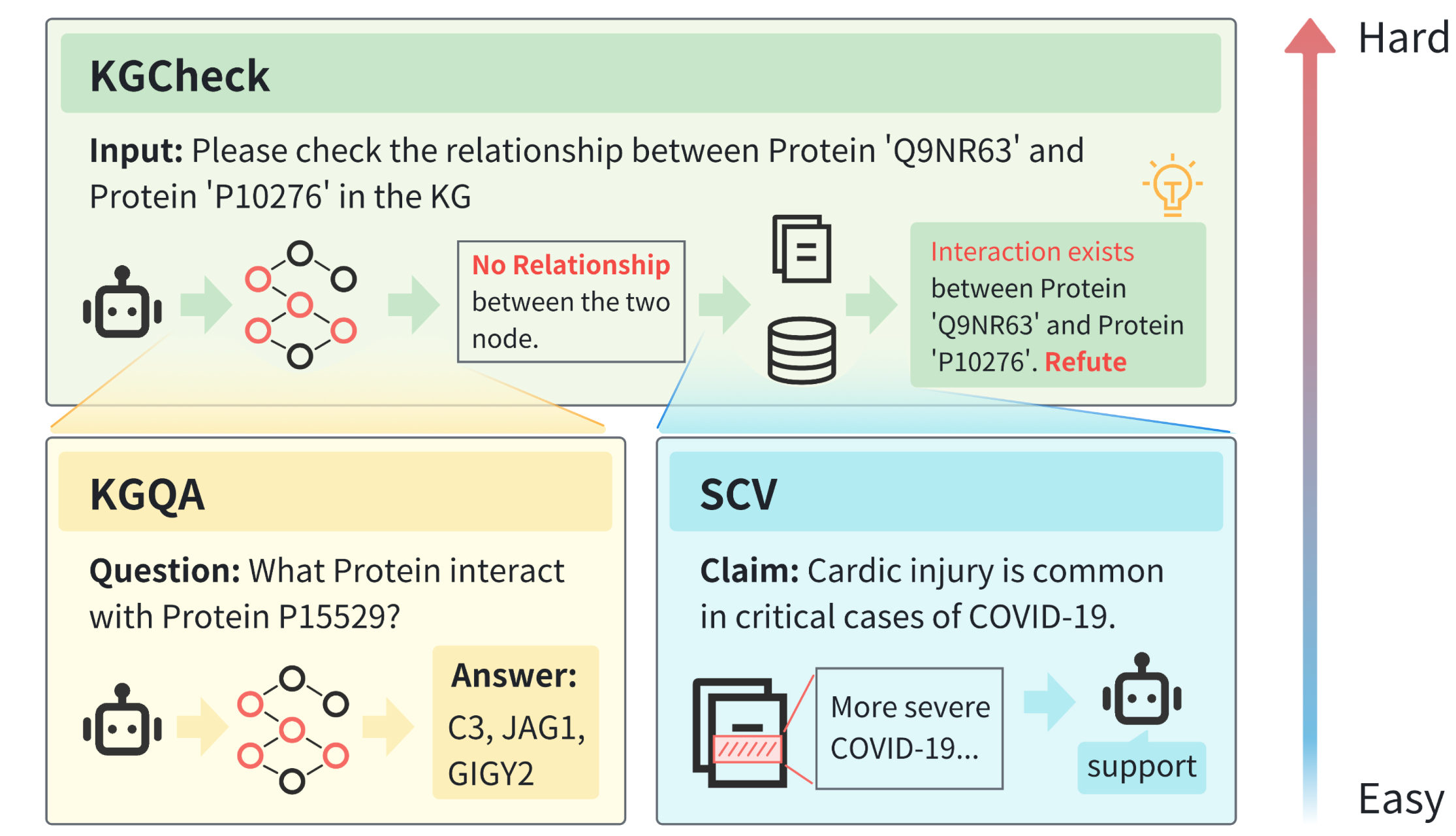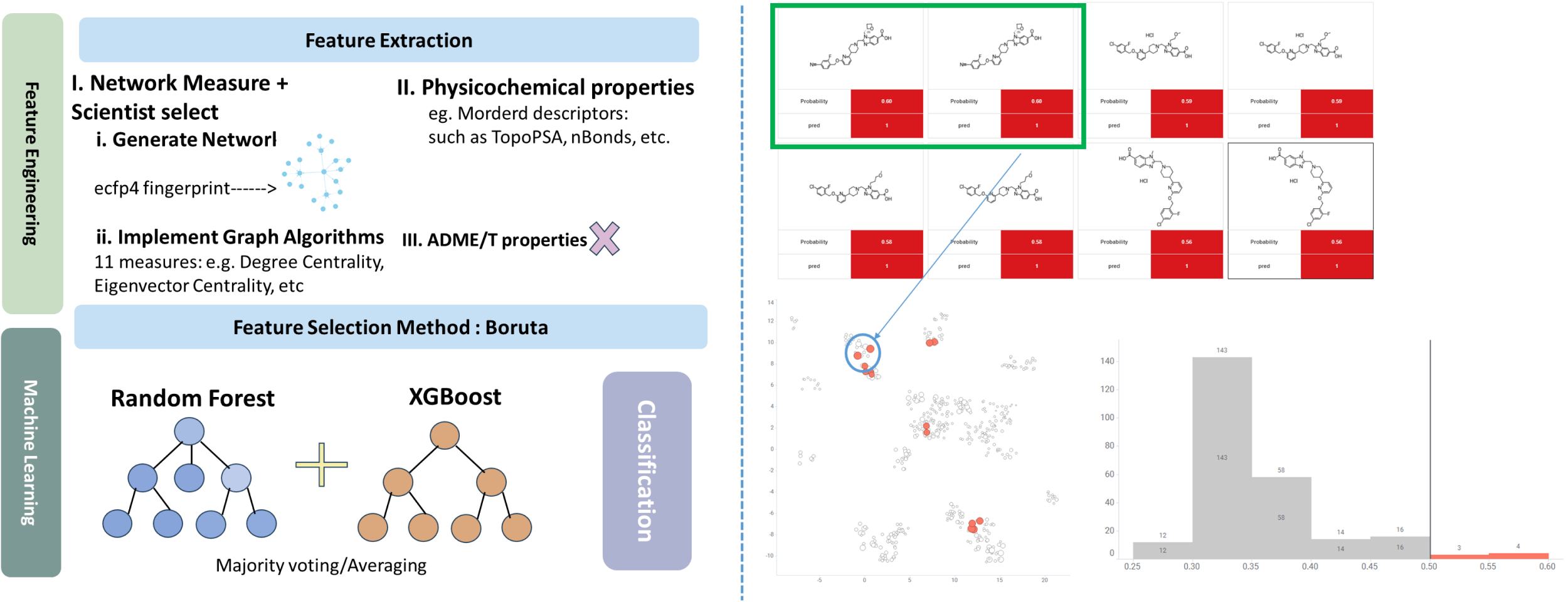Knowledge-Driven Agentic System for Science
Developing AI agents that leverage knowledge for scientific reasoning and discovery
We develop fully autonomous AI systems that revolutionize scientific discovery through integrated knowledge representation and practical application frameworks. Our research focuses on building agentic AI systems that can effectively leverage domain-specific knowledge for scientific reasoning, hypothesis generation, and practical problem-solving across diverse scientific domains.
Part 1: Knowledge Integration for Agentic AI Systems for Scientific Discovery
Our Objective:
The emergence of agentic AI, powered by foundation models, opens unprecedented opportunities for scientific discovery. However, these systems face fundamental challenges in scientific domains due to knowledge limitations from unbalanced pre-training data, particularly in specialized fields where accurate and up-to-date knowledge is critical.
Against this background, we aim to explore how to effectively leverage structured knowledge—through techniques including but not limited to RAG, knowledge-enhanced reasoning, and dynamic knowledge updating—to design advanced agentic systems. Our research encompasses developing scientific foundation models tailored for specialized domains, augmenting existing scientific tools with AI capabilities, designing multi-agent collaborative frameworks, and creating human-in-the-loop systems that enhance reliability and interpretability.
Hopefully, these knowledge-driven approaches will bridge the gap between general AI capabilities and domain-specific scientific needs, addressing critical challenges such as data scarcity, noisy annotations, and complex domain-specific constraints. We strive to create AI systems that can navigate the ever-evolving landscape of scientific knowledge while maintaining rigorous standards of validation and interpretation.

Figure 1: Integration of the Knowledge Into Agentic AI systems.
Our Achievements So Far:
- 1. BioKGBench: Biomedical Knowledge Graph Benchmark (Lin et al., 2024)
We developed BioKGBench, a novel benchmark for evaluating knowledge graph reasoning capabilities in biomedical domains. This benchmark enables automatic curation of domain-specific scientific knowledge and provides standardized protocols for assessing AI agents' ability to verify scientific facts, identify inconsistencies, and reason over complex biomedical knowledge graphs. Notably, it creates valuable scenarios for agents to detect factual errors, representing a crucial step towards automated scientific discovery.
2. THE-Tree: Historical Evolution Tracing for Scientific Verification (Wang et al., 2025)
We proposed THE-Tree framework that enhances scientific verification and reasoning by tracing the historical evolution of scientific concepts and discoveries. This approach enables agentic systems to understand how scientific knowledge evolves over time, improving their ability to validate hypotheses and identify novel research directions.
Future Outlook:
We will expand our knowledge integration frameworks to encompass multi-modal scientific data, develop dynamic knowledge updating mechanisms, and create cross-domain knowledge transfer protocols to enable agentic AI systems to continuously evolve with scientific advancements.
Moreover, we will dive deeper into theoretical foundations, including statistical models and theories of agentic scientific AI through studies on in-context learning and multi-agent communications. We also lay emphasis on logical reasoning and causal reasoning to address the critical interpretability challenges in scientific scenarios.
Part 2: Practical Application of Scientific Agentic AI
Our Objective:
Deploying agentic AI systems in practical scientific research requires addressing domain-specific challenges, including unique data formats, workflow integration, and trustworthiness requirements. Our research focuses on developing applied agentic systems that can operate effectively in real-world scientific environments while maintaining robustness and explainability.

Figure 2: Agentic AI for Practical Scientific Application.
Our Achievements So Far:
- 1. PatentAgent: Intelligent Agent for Pharmaceutical Patent Analysis (Wang et al., 2024)
We developed PatentAgent, an intelligent agent system for automated pharmaceutical patent analysis. This system demonstrates the practical application of agentic AI in drug discovery and intellectual property research, showcasing how AI agents can assist researchers in analyzing complex patent documents, identifying novel compounds, and tracking competitive landscapes in the pharmaceutical industry.
Future Outlook:
Building on our collaborations with science groups, we will identify more clinically meaningful and scientifically valuable scenarios within biomedical domains. Our focus will be on developing agentic systems that can effectively manage the complexity and ever-changing nature of real-world clinical practice. We will continue to investigate domain-specific model adaptation for specialized biomedical applications, enhance robustness and trustworthiness through improved explainability mechanisms, and establish rigorous validation frameworks to ensure reproducibility of results generated by agentic AI systems. These capabilities will be extended to broader biomedical applications including precision immunotherapies, drug discovery, personalized medicine, and clinical decision support.
References
2025
-
 THE-Tree: Can Tracing Historical Evolution Enhance Scientific Verification and Reasoning?arXiv preprint arXiv:2506.21763, 2025
THE-Tree: Can Tracing Historical Evolution Enhance Scientific Verification and Reasoning?arXiv preprint arXiv:2506.21763, 2025
2024
-
 Biokgbench: A knowledge graph checking benchmark of ai agent for biomedical sciencearXiv preprint arXiv:2407.00466, 2024
Biokgbench: A knowledge graph checking benchmark of ai agent for biomedical sciencearXiv preprint arXiv:2407.00466, 2024 -
